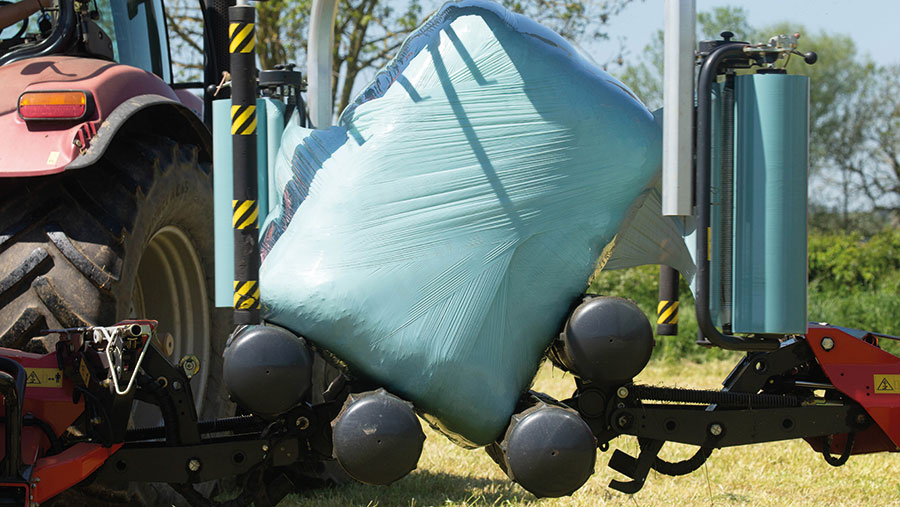Danger of contaminated haylage raised after 18 horses die
 © Tim Scrivener
© Tim Scrivener
A horse livery proprietor has reached an out-of-court settlement with the owners of 18 horses and a donkey that died from botulism having been fed contaminated haylage, sending a warning to farmers who also produce forage to sell to the equine sector.
The animals ingested the botulism-causing bacteria from haylage produced by Kevin Horsefall, of Clough House Liveries near Sowery Bridge, West Yorkshire, where they were stabled.
See also: Find all out grassland management advice in one place
Horses are at risk of poisoning if the quality of fermented wrapped forages and big bale hay is poor – they only need to ingest a very small amount of the toxin for it to be fatal – and the owners now want to raise awareness of the dangers.
Solicitor Jacqui Dark, of Equine Law UK, who acted for eight of the horse owners, says in most cases where botulism outbreaks have occurred in horses and feed, or where forage was identified as a source of the neurotoxin, there was evidence of spoilage.
“Typically, botulism from forage occurs from contamination with soil, animal carcasses or poultry slurry, or from rotting due to poor quality wrapped forages not being preserved thoroughly, or hay not being stored correctly,” she said.
Best practice
The owners, said Ms Dark, urged farmers to follow best practice guidance when producing haylage.
That includes careful harvesting techniques to reduce the risk of contamination of the bales with soil (including cutting grass at 10cm or higher), taking care with raking, and not harvesting when the ground is wet and muddy.
Wilting the forage for 36 to 48 hours before wrapping will ensure a high enough dry matter, as low dry matter and high pH are risk factors.
The advice is also against using poultry slurry on pasture that is destined for haylage production, and avoiding harvesting after the application of any slurry.
Using eight layers or more of plastic wrap will ensure that haylage does not become punctured during handling, transportation and storage, leading to spoilage.
Air tight
Horse nutrition expert Clare McLeod, who assisted the claimants, said it is crucial that haylage is kept airtight since this is key to avoid spoilage.
“Unlike silage, the grass in haylage is not preserved solely due to bacterial fermentation and the resulting acidity, but depends on being airtight for its preservation,” she said.
“If air gets into a bale of haylage, the result will be heating of the forage from the growth of moulds and bacteria, which may be pathogenic.”
Prompt removal and replacement is also recommended of any bales showing spoilage, including mould, an unusual smell such as ammonia, or any rotten areas.
